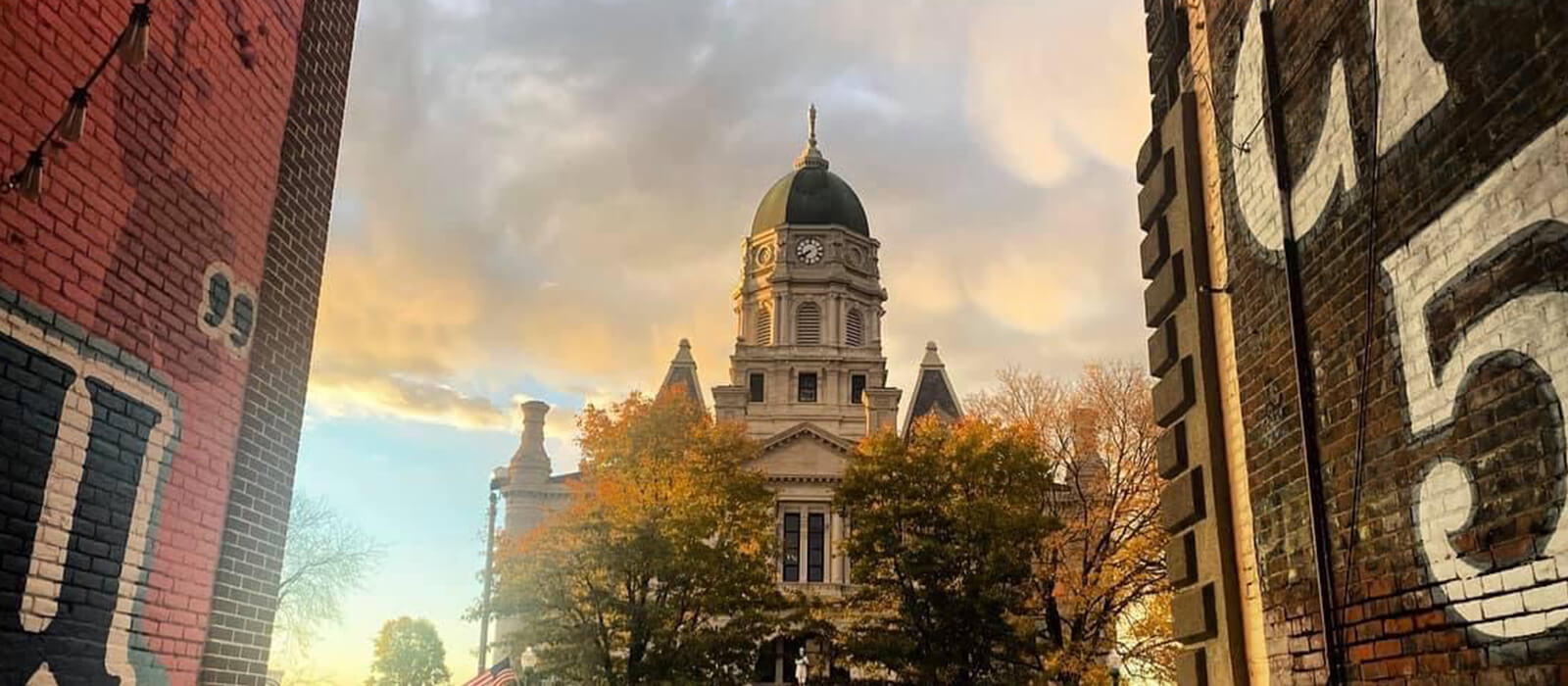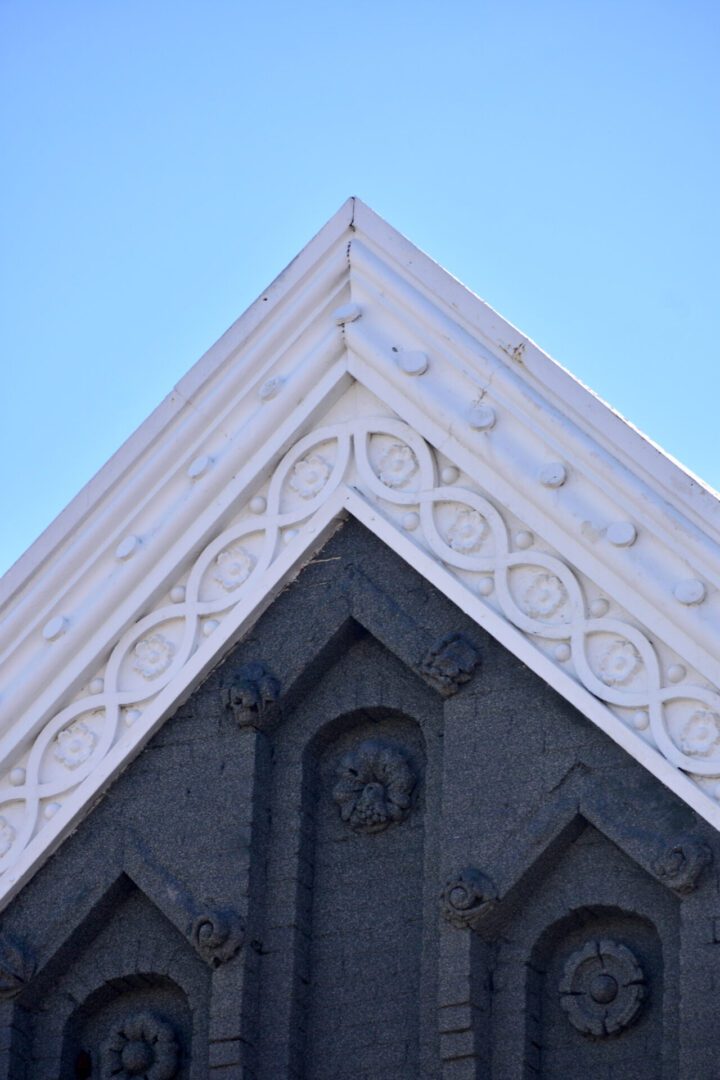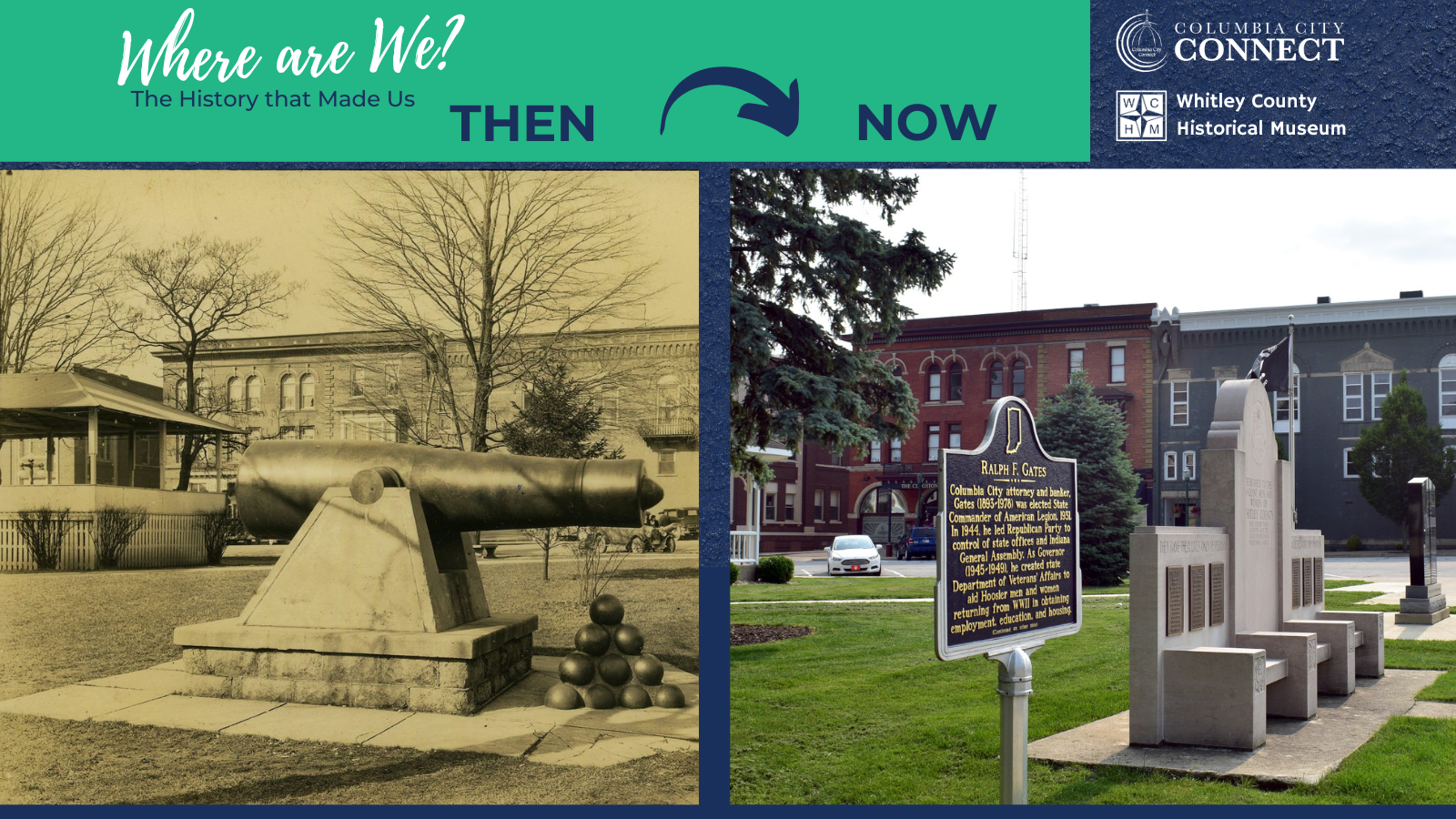
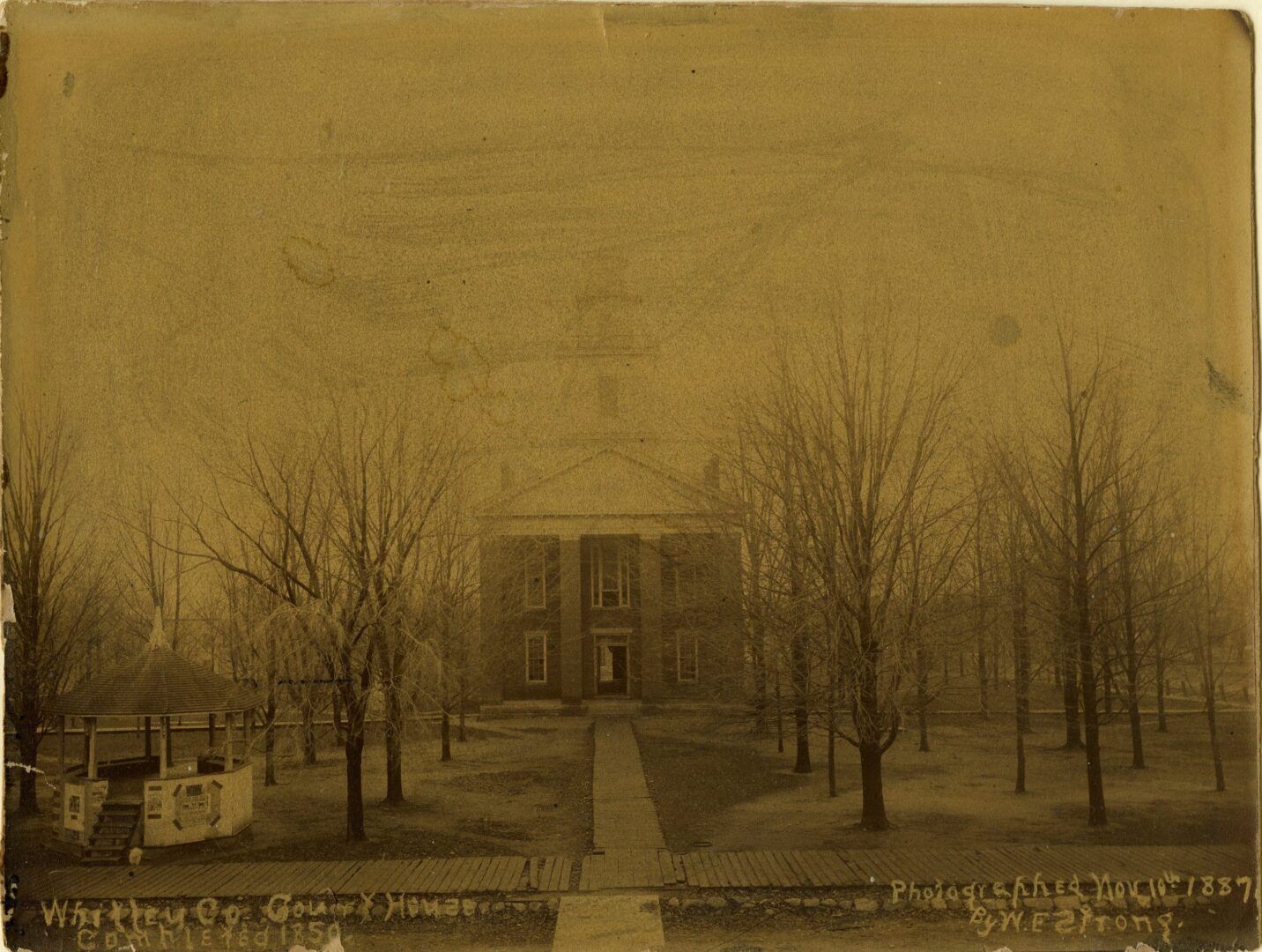
The Gazebo and Square: Columbia City’s Community Commons
The courthouse square and gazebo are welcoming gathering spots for community events many years. It is here that people can pass the time, make speeches to a crowd or conduct programs of local interest. In more recent years, it is a favorite spot to come to Frist Fridays, the local Farmer’s Market and more.
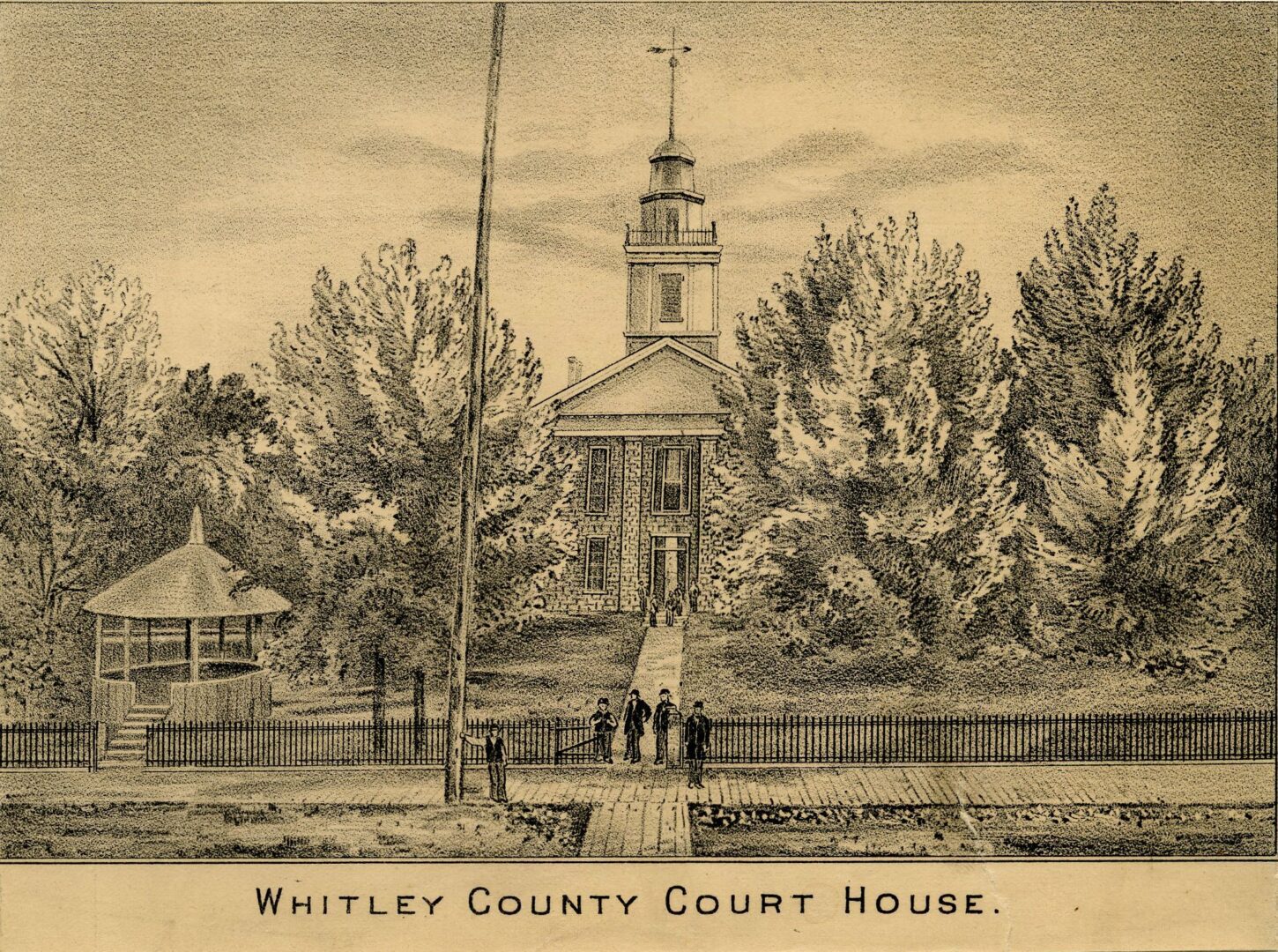
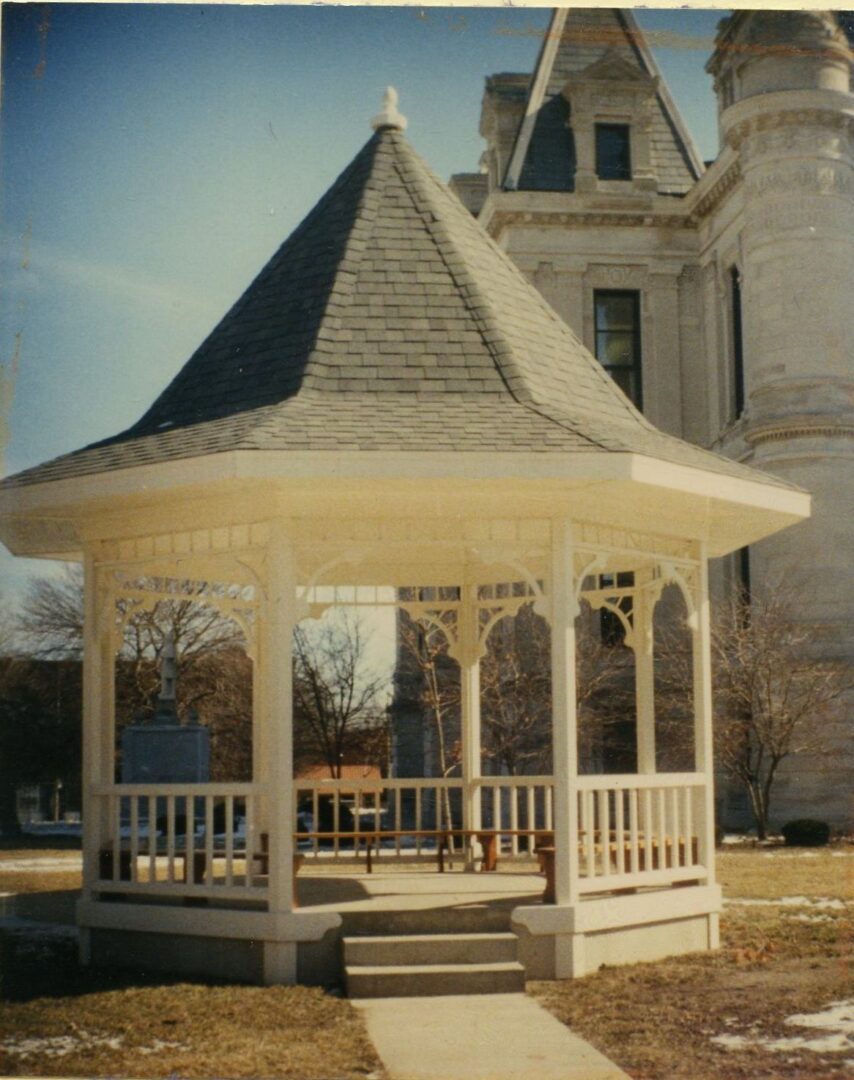
And for 120 years, the courthouse square and gazebo has been the site of where the annual Old Settlers Day festival has taken place. This year is the 121st celebration (the first year took place at Loon Lake).
𝐀 𝐂𝐞𝐧𝐭𝐮𝐫𝐲 𝐀𝐠𝐨 𝐨𝐧 𝐭𝐡𝐞 𝐂𝐨𝐮𝐫𝐭𝐡𝐨𝐮𝐬𝐞 𝐒𝐪𝐮𝐚𝐫𝐞: 𝐎𝐥𝐝 𝐒𝐞𝐭𝐭𝐥𝐞𝐫𝐬 𝐨𝐟 𝟏𝟗𝟐𝟓
Here is a reflection from the Old Settlers event that took place 100 years ago. The article was published in the June 2025 Bulletin, a publication by the Whitley County Historical Society.

Newspapers of the time, called the 1925 Old Settlers’ program a great success with the “Biggest Crowd in History.” Col. Joseph R. Harrison estimated the crowd somewhere between 10 and 15,000.
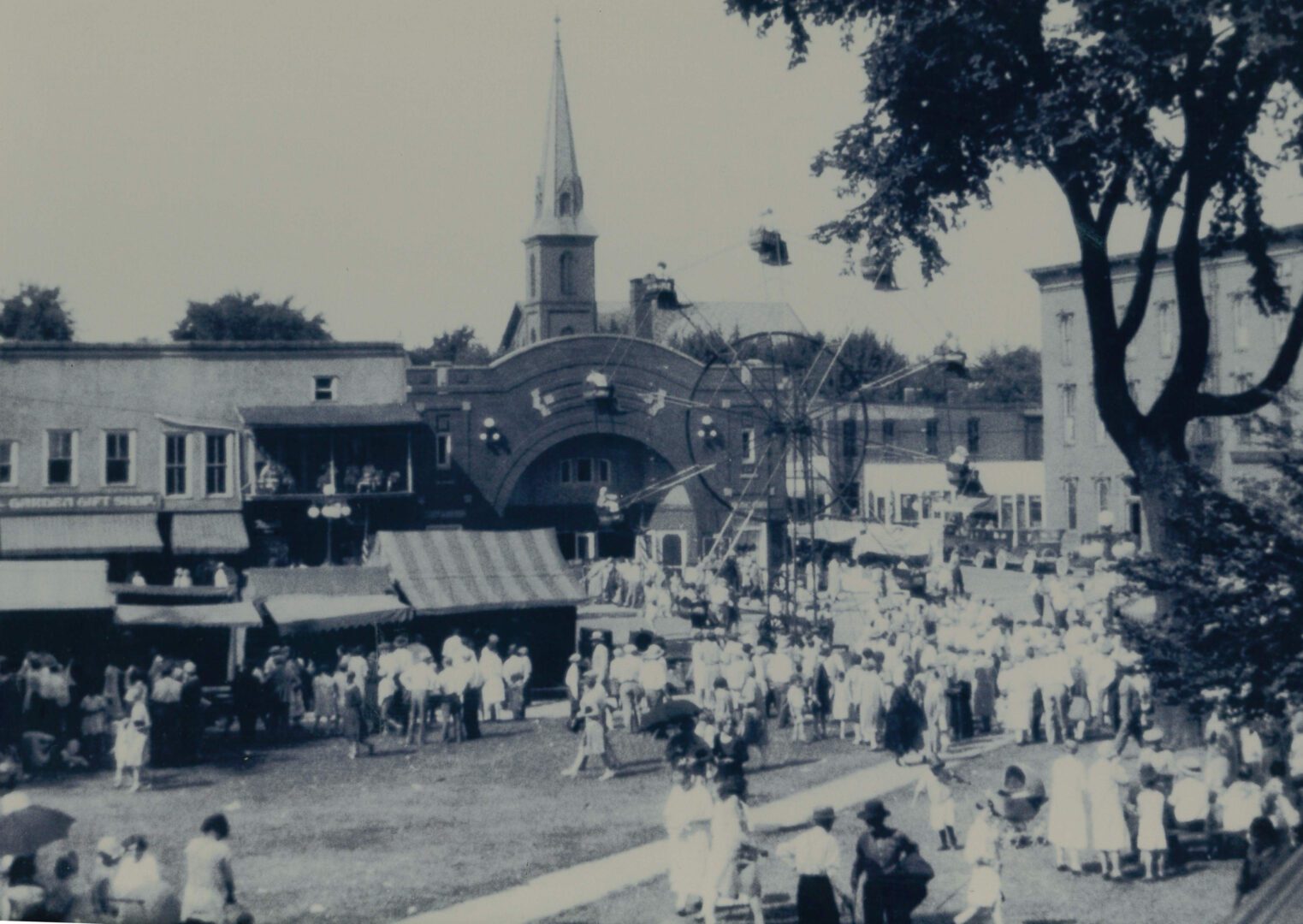
That year’s event took place Thursday, Aug. 13. The day began with registration at the courthouse. Awards were presented later in the day, with Elizabeth Essig being named the oldest resident to register, aged 86 years and six days. The Longest Continuous Resident Award went to Margaret Bennett, who was to turn 83 years-old later that year. She was a resident of Laud.
The true highlight of the day was a presentation of the Black Horse Troop from Culver. Thousands gathered to watch their display. The troop was led by the Culver band from Van Buren to Washington streets and then on to McDonald hill. A newspaper account reported, “the exhibition of riding by the cadet boys was very wonderful indeed, when it is considered that many of the boys have been in training there for only a little over a month. The horses, of course, are seasoned and thoroughly trained animals and some of their riders were not as graceful as the men who had been on their backs throughout the regular term. Some of the wise old horses bucked and kicked at times, which only added to the amusement of the crowd. The various drills of the troop were spectacular and some of the formations which the horses and their riders executed were fine. The number of horses engaged was about 98.” The parade was followed by an exhibition and performance by “King,” the Culver Black Horse Troop mascot.
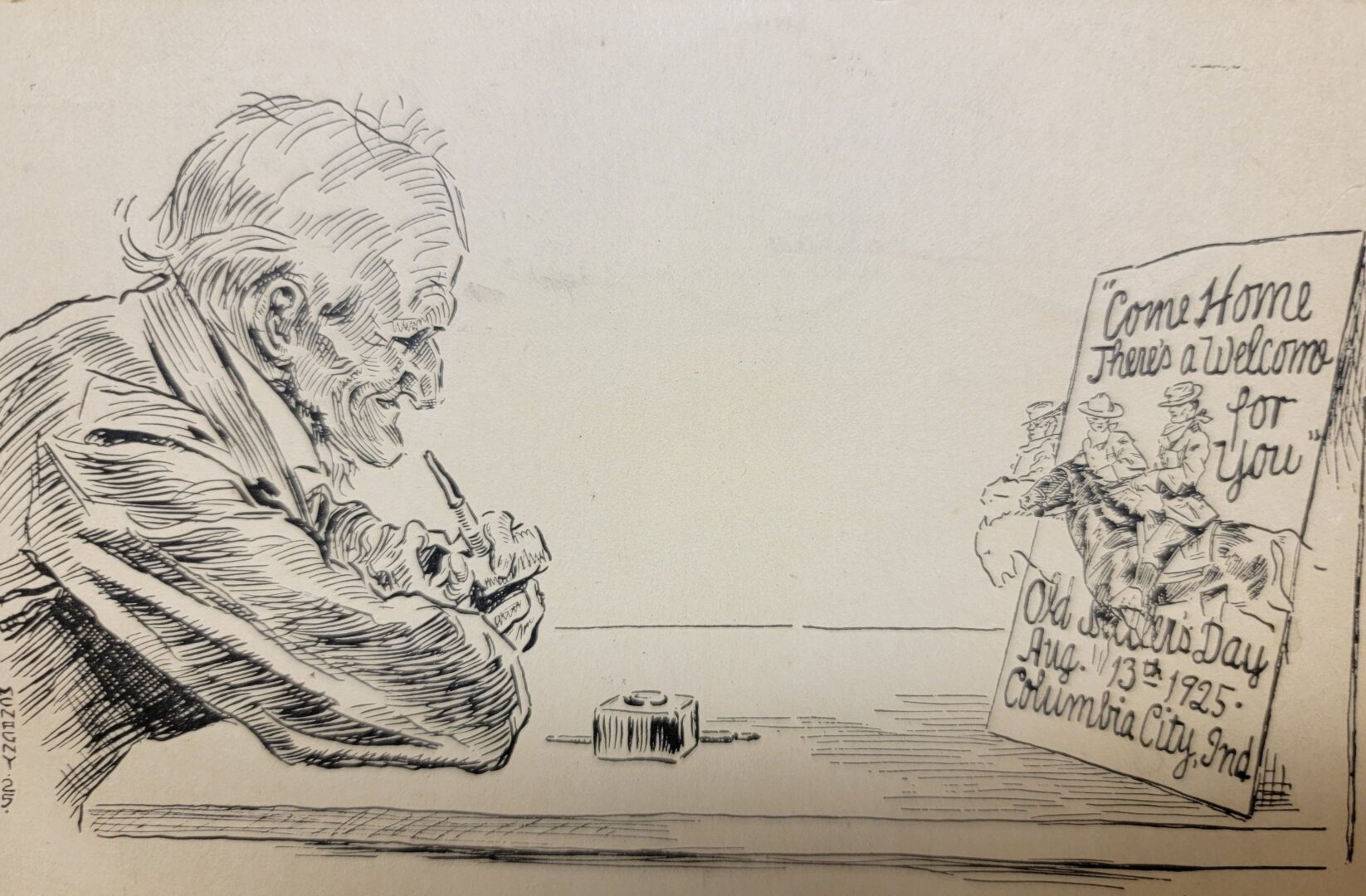
Throughout the day the Gun Club conducted a shooting contest with several squads and individuals competing. Similarly, an ever-popular tradition of the Horse Shoe Contest took place throughout the day. Prize winners for the day were Clair Bunyan, George McConnell, Otto Ward, Robert Pence. A baseball game was also a popular attraction with the Columbia City Modern Woodmen team and Winona Academy teams competing. In the end, Winona would win the game with a score of 6 to 3.
The day concluded with a reception and dance at City Hall. Hundreds gathered for this event put on for the Culver Boys. Music was provided by the Elks Orchestra. “Although the hall was warm, everyone seemed to enjoy the affair,” said a report of the occasion.
With such a splendid occasion, attendees from all corners of the county would no doubt be anxiously awaiting the 1926 event.
Thank you to Rachael Hartman for her outstanding research and writing of the article and the Whitley County Historical Museum for sharing photos from its collection.
𝑾𝒉𝒆𝒓𝒆 𝒂𝒓𝒆 𝑾𝒆: 𝑨𝒓𝒄𝒉𝒊𝒕𝒆𝒄𝒕𝒖𝒓𝒂𝒍 𝑯𝒊𝒔𝒕𝒐𝒓𝒚
Brackets like this one are decorative features found in many styles of architecture through history. However, this particular one is a bit newer than what we usually see on Wednesdays.
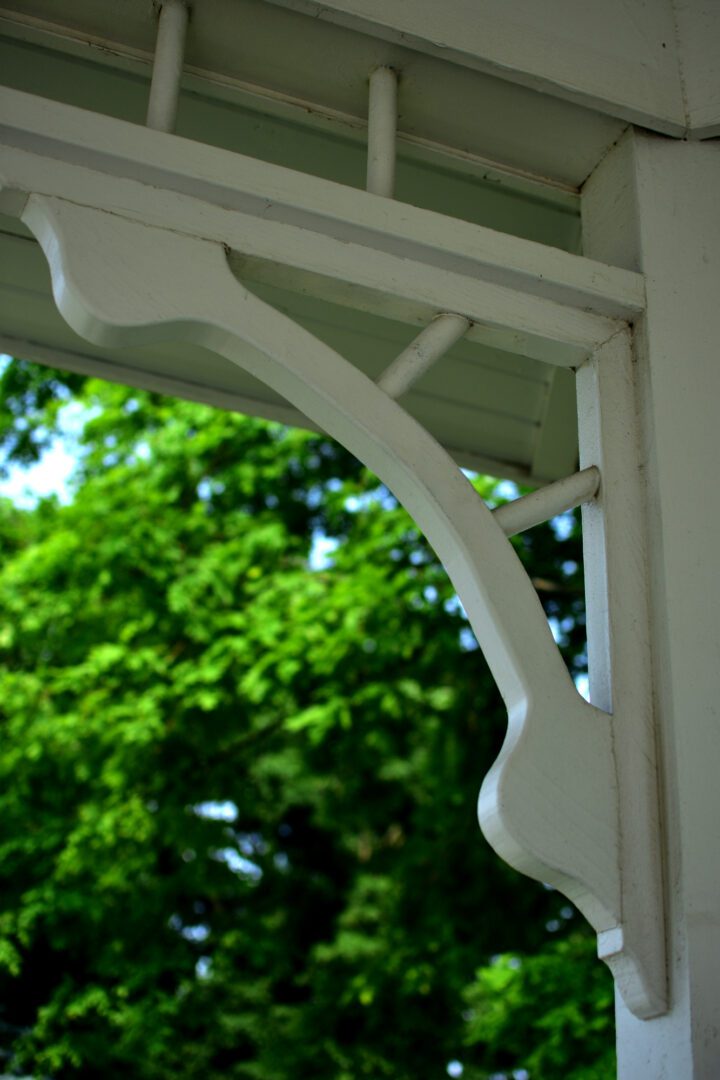
This decorative bracket is to be found on the gazebo on the courthouse square. While this structure is only hardly 30 years old, and so it has another two decades to become defined as “historic”, it is the most recent of a history of public bandstands and pavilions on the square going back 140 years.
Used by bands and musicians, speechmakers, gathering places during festivals, and simply as a resting place for weary pedestrians, bandstands were commonplace in downtowns in the 19th and early 20th centuries.
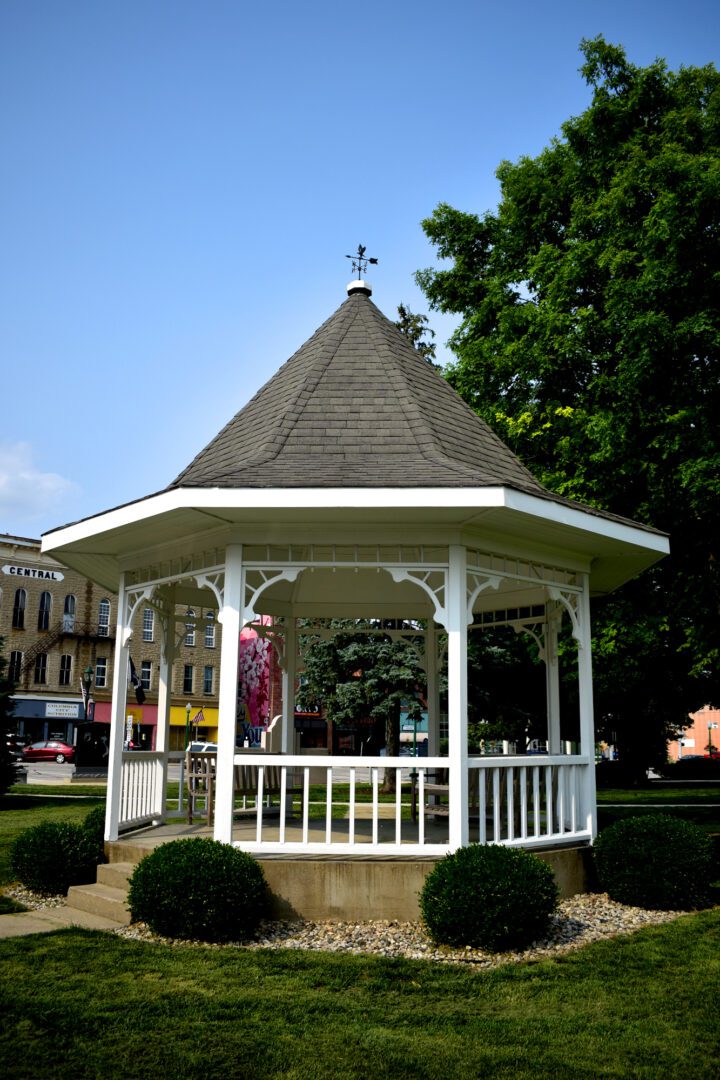
The current gazebo is essentially a stylistic replica of a historic gazebo–although it is neither of the same style or size as the two previous bandstands on the square, which were plainer and bigger. But it shows the importance of incorporating new structures and buildings in the historic fabric of downtown, as well as continuing the legacy of public forums at the heart of our community.
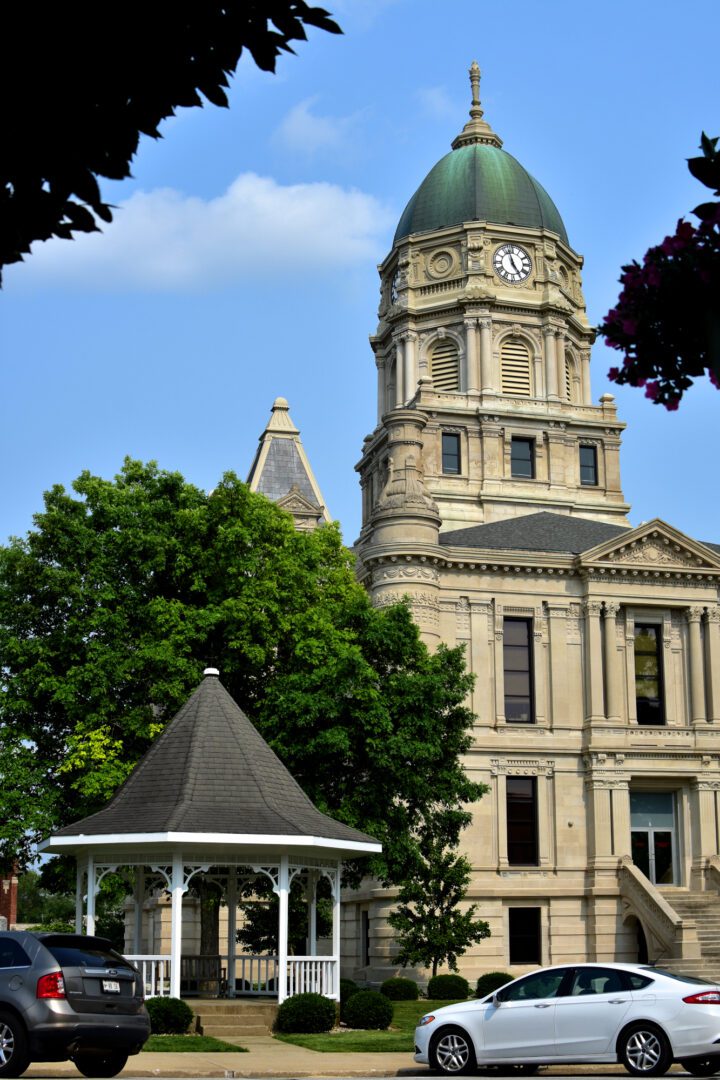
Thank you to Nathan Bilger for providing the recent photos and valuable insights into the architectural history.
For more on The Central Bulding, check out the Windows into History series at the Columbia City Connect’s website: Windows into History Archives – Columbia City Connect
